You need workplace inspections

Last week, Ada noticed the office photocopier wasn’t working rightly. She thought it was negligible but didn’t say anything to anyone. The office has never had a workplace inspection plan. Yesterday, when Kate started to use the machine, she got electrocuted. Thankfully, Biola saw her and immediately switched off the equipment. Kate did not die. However, she sustained injuries. Now, that was very close! Who wants to waste business funds on scenarios that could have been avoided? These things happen! A lot of potential hazards can be stopped from growing into accidents through workplace inspections. Most times, we take happenings in the workplace for granted. Other times, we create tasks for ourselves and employees wrongly. Regular inspections can expose existing and potential danger. Hazards like a sharp nail, a blown fuse, faulty equipment, poor workstation design, uneven floors have a high potential to cause injuries and illnesses. Someone might be thinking “This is not for me”. Hold that thought. Are some more prone to injuries than others? Anyone can get injured on any type of job. People faint, fires start, people trip and fall, machines malfunction in various businesses. To really get things right, you would need a Safety Professional to help you with safety inspections. However, on your own you can begin to assess the work process (Are there repetitive tasks? Is the task properly designed? Do staff have sufficient break time?), the environment (What is the noise level? Is the workplace too hot or too cold?), the equipment (Does it malfunction? Is it appropriate for the particular task?). Workplace inspections could be done daily, weekly or monthly depending on the scale and nature of business. Workplace inspections are important to start-ups because they help you: Identify existing and potential hazards (danger) Recommend corrective actions Interact with employees and know their concerns as they perform their daily tasks Monitor existing corrective actions So, what have you observed at work that could lead to harm? Do something about it!
Elizabeth Bisher: I solved my problem then turned it into an opportunity
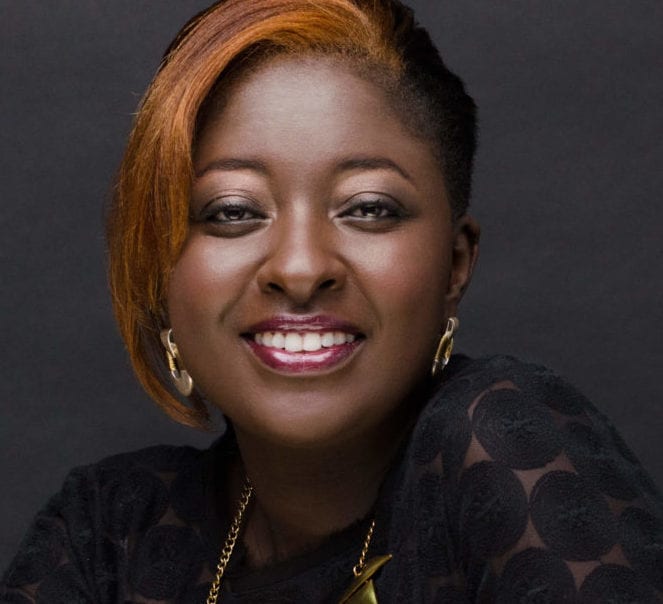
Ever had a business idea from your own experiences? We’re sure you’ve had several as a #MotherlandMogul. A good number of us leave our ideas as just that but Elizabeth Bisher took hers a step further. Concerned with losing weight after weaning her first child, Elizabeth stumbled upon electrotherapy. She went on to start Slim Therapy as a means to share her own brand of health and wellness. Slim Therapy has grown to be the first locally-owned weight loss franchise in Kenya. Through Slim Therapy, Elizabeth now helps other people reach their health goals through alternative weight loss treatments and nutrition and lifestyle coaching. Elizabeth’s vision is to provide employment through Slim therapy’s expansion- driven franchising platform. What’s the story behind Slim Therapy? Slim Therapy started with my own need to lose weight after weaning my first child. My weight spiked as he passed the eight-month mark. I began ballooning, pardon my expression! That is how I felt and became. I was naïve and knew very little about personal health and wellness. I was quite unaware that the food I was eating was affecting my body until I had gained over 12 kilos. This, I came to realize was true for a lot of women. I tried several methods to lose weight, which did not work effectively. I had a knee injury and back sensitivity, therefore I needed to be careful on experimenting with a different solutions. In my quest to lose weight and gain wellness, I discovered electrotherapy. I was hooked —it helped me build muscle mass and lose fat without doing impact exercise. It was ideal for me. My friends noticed my transformation and were curious. This is how Slim Therapy was born. I solved my problem and turned it into an opportunity. Slim Therapy has helped many individuals, especially those with reduced mobility to achieve health goals through alternative weight loss treatments and nutrition and lifestyle coaching. What did it feel like to launch something new in Kenya? It was daunting, scary, exciting and challenging, to say the least. Being an SME with little market share, I solve one challenge after the other. I had to use my resources effectively and work smart. Most importantly, I get to effectively communicate this new alternative to weight loss, and can swear that it works. After all, I was the living proof. If there was a communication gap, the information would have been filled with rumours and innuendos. We learned to counter this by always being open and honest with our clients. Fortunately, this led to more and more people willing to try it. And with the growing number of success stories, the information spread especially by word of mouth. It’s been 6 years and I do not regret a thing. Franchising of weight loss companies seems a novel idea in Kenya. How are you making it work? Aside fast food chains and clothing lines with foreign ownership, franchising has been a fairly new concept in the Kenyan market. There are no specific franchise laws in Kenya. Therefore, we relied heavily on existing commercial laws, including the Trade Marks Act (the Slim Therapy name and logo is Trade Marked) and the Copyright Act. These gave us a guideline of the legal requirements. Also, through personal research and on guidance from my mentor, we came up with a model fit for the Kenyan market. How does Slim Therapy incorporate franchising? Two years into running the first branch, the demand for our services was overwhelming in other regions within Nairobi and in towns in Kenya. I wanted to find a way to satisfy this demand, without compromising on management and quality of service. Of course, I knew it would impossible to be in all these towns at the same time. Interestingly, one of my clients came to me with a serious interest in running a similar clinic in Mombasa. And so we came up with franchising as an option. This would ensure that we gave the same quality of service despite having different managements. They rode on the credibility of the existing brand and we provided training, machinery, advertising and continuous support to them. Quite recently, we opened our third branch in Karen, Nairobi, under the same model. We are very proud. Tell us about some of the women who work with you. The women I work with are brilliant women who have overcome a lot of adversity to be where they are today. Some of my staff were from disadvantaged backgrounds but that actually served to spur their self confidence and abilities to learn and grow. Most of my employees require mentorship and confidence-building. I encourage them to keep pursuing their dreams and following their destinies by exposing them to new challenges and providing training for them. I have tried to build these traits by encouraging them to speak publicly. And to also express themselves eloquently in both written and spoken language at all times. In this vein, I encourage my employees to pursue their own business aspirations and mentor them to their full potentials. Some have natural talent and just need a boost. How can African women achieve the same success as you have? Firstly, it’s better to know that everyone’s journey is different. Do not try to be an imitation, you are unique and should strive to be. You do not have to reinvent the wheel. And even in using existing concepts, beat your own path. Secondly and very important, find a mentor. Understand that a mentor is not someone who makes the decisions for you. They are not your crutch. They are people to help you decide if your vision is compelling enough. Or send you back to the drawing board. And lastly, as much as you follow your passion, business boils down to profitability. Your business idea may be good, but if the market isn’t ready for it, be flexible. Think outside the box and be ready to adapt to changes. Tell us about receiving the Top 40 under 40 award. How did it motivate and spur you on? The morning the Top
Mallah Tabot: Openness around sexuality is still lacking
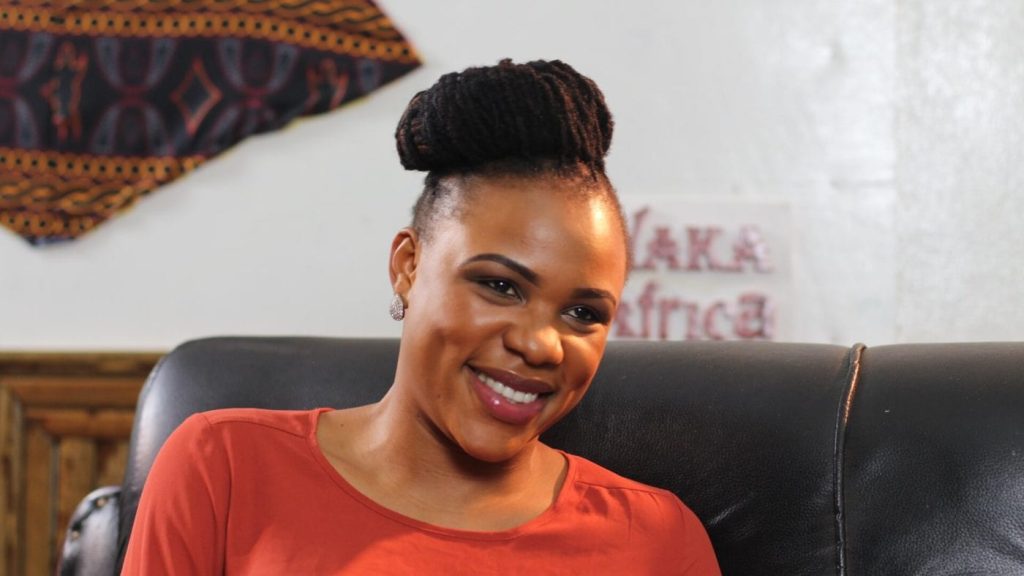
Imagine your parents talking to you about sex. Awkward right? Mallah Tabot believes the world will be a better place if parents start having open and honest conversations about sexuality with their children. We’re inclined to agree with her. Since 2012, Mallah has been working very hard to improve the lives of many young Cameroonian women, including those at risk of early and forced marriages. As a reproductive health activist and CEO of an NGO in Cameroon- United Vision, she fights against trends and tendencies that relegate women and girls to the background. SLA contributor Marriane spoke to Mallah on her recently launched sexual education app called Ndolo360, her challenges, and dream for an Africa where women, especially young girls can talk about sex without stigma. Sex is not something we talk about in Africa. Why the passion for a topic like that? I agree, sex is a sensitive topic in the African socio-cultural environment. This is as a result of a void in comprehensive sexual education in the educational curriculum. Also, most parents do not discuss sexuality with their children. Many of the kids resort to the Internet for pornography as opposed to educative sexual information. When these young ones don’t get the right information from the right sources, they tend to make wrong decisions. This has often resulted in unplanned pregnancies, STIs/HIV, unsafe abortion, and more. That is why I am interested in creating a platform where we can address this. I believe parents need to start having open and honest sexual talks with their kids. What challenges did you face while starting out? How did you overcome them? Initially, very few people believed in my idea and its potential to work. People questioned my judgement for choosing to tow this path as opposed to finding something more “stable” like a full-time job where my financial security would be guaranteed. With a clear sense of purpose, I’ve been able to deal with that. As a young woman, it was hard. You have to make the strategic calls and connections in a sub-environment dominated by men. We had to deal with not being taken seriously or being courted 9 out of 10 times. I think it was even more difficult, given that our area of expertise is sexual health. Men didn’t take us seriously but assumed we would be comfortable listening to their sexual fantasies of us and other women. Unfortunately, that’s the unfair world we live in. We’ve strategically dealt with it and we are succeeding. The pressure also continues to diminish as I gain more confidence and skills in my area of work. I now face such situations with strength as I grow older. Also, I had challenges with building personal capacity to raise funds, running our programs and convincing outsiders to have a vested interest in what we do. Every day remains a challenge, but I’m happy that with time, they feel less like challenges and more like opportunities for personal and organizational growth. You recently launched an app, Ndolo360. Tell us about it. In Cameroon, like in most of Africa, sex is a very difficult and sacred topic. Young people grow up knowing nothing about their own bodies and end up getting the wrong information from the wrong sources. This has resulted in them making uninformed decisions. Teenage pregnancy rates are up and 141 out of 1000 girls aged 15-19 in this country have been pregnant, at least once. I found this despicable and started thinking of ways to address this problem, using technology. Ndolo360 is the first ever mobile application in Cameroon to provide judgement-free education, information and services on sexual and reproductive health for teenagers, adolescents and young people. The app is available on Google Play and is free of charge. It comes with several amazing features which will transform young people’s knowledge about sexuality and sexual health. What do you plan on achieving by launching this app? A few days ago, a father emailed us to say he had asked his 16-year-old to download Ndolo360 to serve as a starting point to openly discussing sexual health. This is exactly one of the many results we aim to achieve. Teenagers are expected to guess issues concerning their sexuality and act accordingly. In fact, parents don’t even have the confidence to mention the word ‘sex’ to their kids. If this app can at least be a starting point for sex education between parents and their kids, the impact will be tremendous. Also, this would help curb the high rate of unsafe abortions and other dangerous practices. It would lower the risks of teenage pregnancy, create more awareness on safe sex and lower HIV infection rates among young people. More importantly, it would encourage a culture of openness when it comes to discussions around sexuality and sex. Young people should use the app for self-education and group discussions about the issues that affect them. What advice would you give young African women looking to make a change in their communities like you? I have learned to believe in myself and my capacity. Most importantly, to surround myself with people who love and believe in me. That’s how I’ve been able to carry on with all I’ve had to do. And trust me, it’s a lot and can be burdensome. I’m happy to have made the decision to cut off toxic people. This has helped me focus on my goals and remain positive. Want to see women you know featured on SLA? Tell us what amazing things women are doing in your communities here.
Making lemonade out of lemons: How my struggle with depression shaped me into a confident woman

My mission in life is not merely to survive, but to thrive; and to do so with some passion, some compassion, some humor, and some style. -Maya Angelou Recently, I got to check off something my bucket list —to see Beyoncé in concert! A recurring theme in her phenomenal performance was overcoming the obstacles in life. The message was one of survival even with the odds stacked against you. It was about making something beautiful out of an ugly situation. It was definitely making lemonade when it seems like all life has served you is lemons! I left the concert on an emotional high while combing through my past experiences and tallying the number of ways my struggles have shaped me into the woman I am today. Mental health, specifically depression, has had a grave impact on my life. It is one battle I have fought constantly throughout my adolescence and adulthood. I have had more low times than I can recall. There were times when I felt that happiness was permanently out of my reach. Those times, it felt like this disease would always stand in the way of me achieving my dreams.Now, I know that I can choose to either focus on the negative or pick out the lessons it has taught me. The choice is entirely mine. So, in the spirit of making lemonade out of the proverbial “lemons of life”, here are some of the positive things I have learnt through my journey with depression. You become more self-aware The famous Greek philosopher Socrates said, “the unexamined life is not worth living.” In this age, we see a lot of people eager to emulate the lives of others in the hope of achieving the same level of comfort, wealth or fame they imagine these people have. I think a lot of people don’t really take the time to truly find themselves. They are unable to decide what makes them happy and what they truly want out of life. Depression is one of those conditions that forces you to take a deep, long and hard look at yourself. I try to understand the reasons behind my depression, my reaction to certain situations and how I can be more positive in spite of it. These insights, in turn, have come in handy in navigating other aspects of my life. You become more empathetic towards others It’s human nature to sometimes make snap judgments about people we encounter, even when these judgments are made based on very little facts. Dealing with depression made me realize that you can never really know what someone else’s life is like until you’ve walked in their shoes. Also, the longer I had depression, the easier and more willing I was to help other people. I took the time to ask questions, listen to their stories and try to support them on their journey as much as possible. If employers had more empathy towards their staff, governments towards their citizens, individuals towards strangers, the world would be a more tolerant place. Depression taught me that sometimes, it’s better to ask questions first and save judgment for later, or never. You become more resilient There have been many times when I almost threw in the towel because I didn’t think I could ever truly beat this disease. It seemed pointless living a life of diminished quality. Now, with medical treatment, therapy and the love and support of my family and friends, most times I’m able to go months without having a major depressive episode. The more I learn about my condition, the more empowered I feel to handle it and not let it control my life. If there’s anything depression has taught me, it’s how to be strong and resilient. I have fought for years and I’m still standing! I try to apply this same attitude to my personal and professional life. I know that no matter how tough a challenge is, the rewards will be beneficial to my growth and maturity. Finally, let’s get more comfortable with talking about issues regarding mental health in our African societies. By being willing to listen and learn about the struggles of others, we give them a chance to express and embrace themselves fully. Our societies will benefit from having citizens that are adequately equipped to cope mentally with the daily challenges. Want to inspire us with your personal stories on SLA? We’d love to hear all about it here.
Job Opportunity: Aspen Management Partnership for Health in Sierra Leone
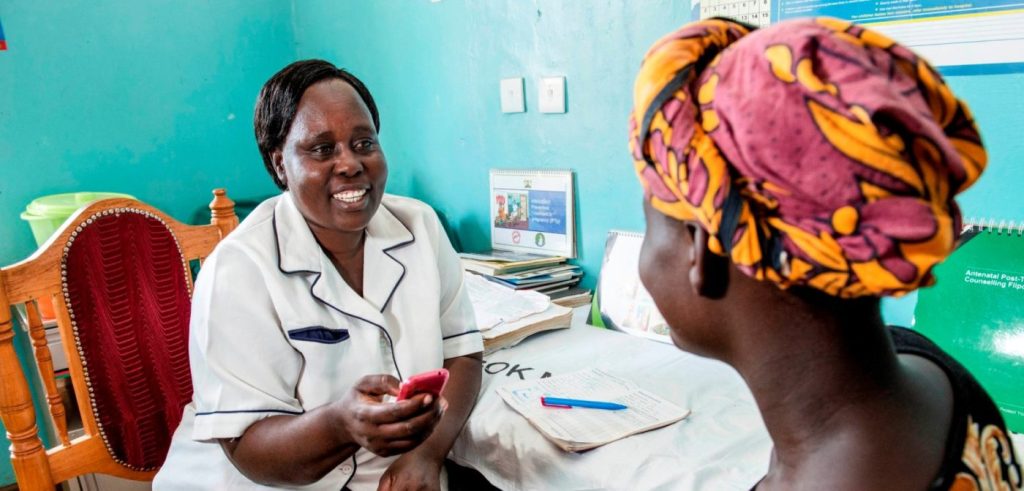
Interested in global health and big systems change? Up for an entrepreneurial challenge and making things happen from within Ministries of Health? Believe that management and leadership are essential for lasting impact? Eager to apply your private sector experience to social problems? Join AMP Health for an exciting two years! An emerging consensus among global health leaders is that stronger health delivery systems are required to ensure preparedness against future epidemics like Ebola, to continue the fight against the top killers of children and mothers around the world, and to handle the growing burden of chronic, non-communicable diseases in low-and-middle-income countries. To strengthen health systems, governments need not only technical expertise, but also robust managerial and leadership skills, and a strategic understanding of the interplay between private and public sector roles. Aspen Management Partnership for Health (AMP Health) is a program of The Aspen Institute that was formally launched in September 2015 at the Annual Meeting of the Clinton Global Initiative. AMP Health offers managerial and strategic support to Ministries of Health (MoHs) in low-and-middle-income countries to facilitate community health system strengthening. The program features include (1) two-year placement of mid-career professionals with private sector experience (Management Partner, MP) within the MoH’s community health department, (2) leadership and management training for the MP and MoH counterparts, and (3) cross-country sharing of best practices and joint problem-solving. AMP Health currently operates in Kenya and Malawi (Sierra Leone to launch in fall 2016) in conjunction with a growing partnership network that includes USAID, Office of the UN Special Envoy for Health, GSK, Merck, the Margaret A. Cargill Foundation, the Goldsmith Foundation and the Bill & Melinda Gates Foundation. Current AMP Health work: The inaugural cohort of MPs was selected in late 2015 and is embedded in the ministries of health in Kenya and Malawi. The MPs bring experience from working at McKinsey, the Clinton Health Access Initiative and other global private sector organizations. In Kenya, implementation began in February 2016 and the AMP Health country team is currently working on strengthening data use so that it can be used for analysis and advocacy to address the impact of Kenya’s recent devolution of government. In terms of engaging with partners, the team is collaborating with the local private sector and other donors as part of measures to strengthen investments in and implementation of community health. Part of this includes the creation of effective investment cases for the financing of community health. Implementation in Malawi kicked off in July 2016 where the team is working with the MoH to act on retention, productivity and performance issues – such as supportive supervision and mentoring – affecting their CHW program. In addition, the team will work to standardize services provided by CHWs, who deliver many of the interventions addressing preventable maternal and childhood diseases. The team will also develop investment cases for the Ministry of Finance and other partners to increase funding for community health. Management Partner Role: AMP Health seeks highly capable leaders to join MoHs as Management Partners. Each MP will serve as a problem-solving partner to national and regional leaders on high priority initiatives related to strengthening a country’s community health system. Based within the MoH, the MP will work closely with the head of the community health department and will report to a senior official in the MoH as well as to the AMP Health team. Specific MP work will be determined in collaboration with MoHs but could include, for example, industry analysis, program design, strategic planning, financial modeling/investment cases, operations, organizational development, marketing strategy, and/or stakeholder management. AMP Health believes in the power of strong leadership and management for systemic change. Accordingly, the MPs will benefit from personalized best-in-class leadership development training that will help them grow as leaders and effective change-makers within MoHs. MPs and their MoH counterparts will also participate in needs-based trainings and work closely with MPs from other countries and a network of local and global mentors from the public and private sectors. These events will serve as a collaborative platform to promote dialogue and best practices in leadership, management and community health systems strengthening. Qualifications: This role will require motivation, flexibility, patience, and a business-minded attitude. The right candidates will balance their proven business skills and results-driven approach with creativity, savvy, and humility. MPs should have an entrepreneurial spirit as well as a passionate interest in – and commitment to – the strengthening of health systems in low-and-middle-income countries. It is expected that the desired candidate will have the following qualifications: Advanced degree in business management (MBA) or other relevant field preferred; Fluency in English (speaking, reading, and writing); 5+ years of private sector experience, preferably with a top-tier management consulting firm; Excellent analytical and problem-solving skills, with an ability to use qualitative and quantitative data; Ability to work under pressure, respond to deadlines, prioritize competing deliverables, and be productive while working both independently and as part of a team; Demonstrated success in establishing and maintaining effective working relationships in a multi-stakeholder environment with varying levels of authority, experience in government and the NGO world would be an added advantage; Advanced skills in Excel, PowerPoint, and Word, with experience in standard statistical or costing packages a plus; Positive attitude and sense of humor; Willingness and ability to live and work in a low-or-middle-income country for two years, with national and international travel up to 25% of the time; and African nationality preferred. Benefits: The MP role offers a direct, meaningful, and high visibility path to public or private sector healthcare leadership, along with structured support from AMP Health’s partners and mentorship networks. This is an outstanding opportunity to drive dramatic health system improvements and strengthen leadership and management capacity within MoHs. The MP will be paid a competitive all-inclusive stipend. To Apply: (1) Submit the short biographical questionnaire located at http://bit.ly/1GER2eF and (2) submit a cover letter and resume by email to recruitment@ampforhealth.org. Applications for the positions in Sierra Leone due by September 02nd, 2016.
Dzivhu Precious Tshiwalule: I know and understand my own purpose
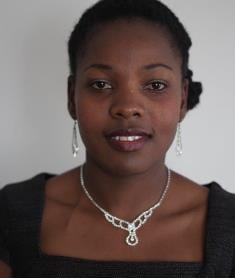
Dzivhu Precious Tshiwalule, a Dietician and co-founder of UPower Africa is one woman who makes being a superwoman seem easy. She attributes her balance in life to knowing and understanding her life’s purpose. As a wife and professional, she refuses to be limited by just her talent but strives to break new grounds. She is also the author of an informative book on eating right, ”Shaping your Attitude towards Healthy Eating.” Lerato Motshana, our SLA contributor had the chance to talk with this awesome and passionate woman. Tell us about UPower Africa UPower Africa is a youth development initiative focused on developing disadvantaged students, especially in remote rural areas. We help them gain access to basic information and education. So far, we have branches in Nigeria, Uganda, Rwanda, Kenya and Zambia. And in South Africa, every province has a UPower Africa manager. How did you become a part of UPower Africa? Co-incidentally, my husband is the founder of UPower while I am the co-founder. My husband grew up in poverty and so naturally, he feels obliged to help kids in rural areas who are going through what he had experienced first-hand. Aside being a co-founder, what are your other roles in UPower Africa? In addition to being a co-founder, I am also a member on the UPower Africa board. We are currently involved in a couple of projects, but I’ll mention a few. We donate computers, school shoes, online university applications and motivation to students in schools. I oversee these projects, liaise with provincial managers, and provide assistance where necessary. UPower Africa is not a typical NPO. How were you able to achieve that? I am inspired by the evident success and progression of those we’ve been able to help and motivate. Meanwhile, UPower Africa is just three years old but we’ve recorded successes in helping people get into universities. Let’s talk about your book, what’s it about? I wrote a book titled “Shaping your Attitude towards Healthy Eating”, and it extensively addresses the attendant health consequences of not eating right. The book is significant to me because as a first-year student in 2005, I was diagnosed with a brain tumour. As a Dietician and from the knowledge gathered, eating right contributes so much to good health. I never got to know the cause of the tumour but through research, I have come to believe there was a link to the kind of food I ate. So, I decided to write a book, highlighting the importance of healthy eating and how to keep chronic health conditions like cancer, high blood pressure, and diabetics at bay. Is healthy eating the ultimate solution to chronic health conditions? Evidently, food plays a huge factor but there are other factors like smoking and so on. Let’s move on to less serious stuff. What do you do for fun? I am usually so busy and actually don’t relax much. I do a lot of seminars on purpose discovery and the like. I am also involved in a lot of church activities, indoor exercises, and travelling. Obviously, I don’t engage in a lot of what people qualify as fun. UPower Africa, book-writing, being a Dietician, a mother, how are you inspired? I am excited and driven by my life experiences and the need to be of help to the next person. What would you say to an African young woman who views marriage as the ultimate life goal? Marriage can be beautiful if you are married to the right partner. My husband and I enjoy a unity of focus and that has helped our marriage. Notwithstanding, I don’t believe marriage is the ultimate life goal. A purpose-driven life should be the goal for everyone, man or woman. If you’d like to share your story with She Leads Africa, let us know more about you and your story here
Planner, actor or innovator? Which public health role is for you?
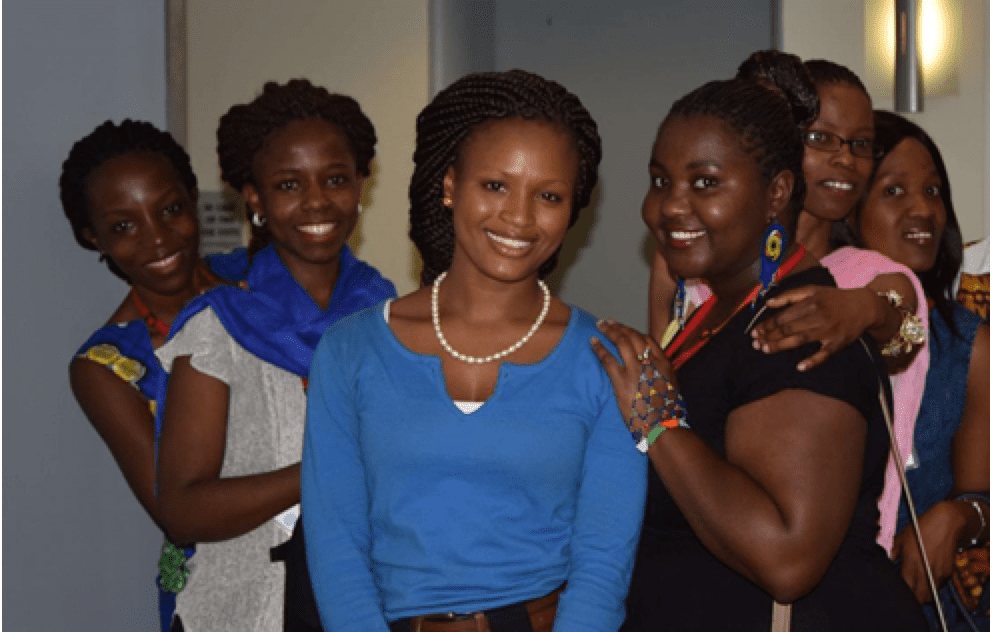
Health improvement and making health better for all, is public health. Simple. But…we bet you knew that already. The first thing that came to mind when you heard ”public health” may have been masked figures a la the Ebola outbreak, but there’s much more to public health than just epidemics and diseases. Having established that, do you think a public health career is for you? Read on to find out more. Okay, imagine public health from the perspective of three groups. I call them, the planners, the actors, and the innovators. The Planners – Behind the scene Do you keep daily planners in your wallets or purses for your ”to-do” shopping lists? You do? Then, that suggests you have the ability to develop layouts on how to carry out activities! If you’re passionate about formulating and writing proposals, no matter how small, you are a planner. Oh yeah, it’s that simple. Do you enjoy working with numbers? Well, knowledge in statistics, data analysis, data management and business intelligence expertise is all you need to collect and analyze health information. It goes without say that without numbers or data, there would be no health intervention. More young women in industries that offer these skills set and expertise should consider taking their career prospects a notch higher within the public health arena. The Actors – Get on stage! Just like in every script, someone has to get on stage and act! Prevention and treatment as major tenets of public health offer a wide range of opportunities to allow for this. Okay, picture this, the hand-wash adverts on TV with the proud mother ensuring that her children’s hands are squeaky clean after a hard day’s job. This is public health too. Are you championing hand-washing and basic hygiene in your community? Or are you engaging with other young women on sexual and reproductive rights? Look no further, you are one of the ACTORS! If you love field work or outdoor activities, get on stage. Just remember that it doesn’t always come with the perks we read about in books or see in movies…but you may finally get that opportunity to travel and meet new people, as you literally try to save the world. The Innovators – Seize the opportunity I should say this is an exciting class to fall into, particularly, with the latest craze in I-TECH initiatives. Tech business is now a part of the world of health. Think of the mobile phone application that takes your heart rate and the menstrual cycle calendar on your device. And I can’t forget my personal favorite, the ‘calories burnt calculator’. Did you ever guess they were public health innovative tools? Well, they are. Take the drones now used in transporting medications. Think of entrepreneurial activities such as designing of health promotion wellness kits, including mother and baby care products and sanitary towels as practical tools in health promotion. The list is endless. Prepare to think outside the box! Be an innovator! Create! Public health is so not limited to those in the health field. It offers wonderful opportunities to everyone in their various chosen career paths. I believe there is a potential public health specialist in every young woman. And hey girl, if you’re a part of the public health sector, I’d love to hear about your experience and how you are changing healthcare in your country! Join us next week on the SLA platform for tips for graduates and young women joining the public health sector.
Stressed? 4 ingenuous habits that will make all the difference

Your head is aching, too many things to do in so little time… You had so much work at your desk and had to skip lunch… You can’t remember if you had water to drink all day… It’s Friday but you can’t say TGIF because your side hustle for the weekend still has some loose ends to be tied up. Therefore, no gym this weekend… Whew! So much stress, so little rest… Hey Motherland Mogul! We are all about your business and career success but we do not want you to pass out in the process…or develop poor health conditions. The beauty of your hard work today is being able to inspire the younger generation years down the line when you’re grey. If you’re not here or in good health, who will? We want to be a part of your success story and as such, your overall well-being is important to us. If you’re stressed, these daily habits could help. Your health doesn’t have to be a barrier to reaching that business goal. Always have breakfast no matter how little. Research has shown that breakfast is the most important meal of the day and prevents unnecessary snacking. Also, avoid skipping meals and eat right. Take it easy on the carbs whilst increasing fruit and vegetable intake. Then make sure you drink water, lots of it. Manage your time properly at work to boost effectiveness and reduce being stressed. This helps to boost effectiveness and reduce being stressed. Work time isn’t the time to engage in office gossip or be on social media so be warned. You should also always ensure that you finish one task before engaging in another All work and no play makes Jill a dull girl Engage in relaxing activities after work and during the weekend. Reading SLA articles perform the dual function of educating and entertaining you. Otherwise, you could go swimming, dancing, travelling or any other thing to take the edge off. Exercise regularly It does not have to be too intense, regular walks are good for reducing cholesterol levels. Take the stairs more and get involved in outdoor activities.
24 hours with the perfect 21st century African woman
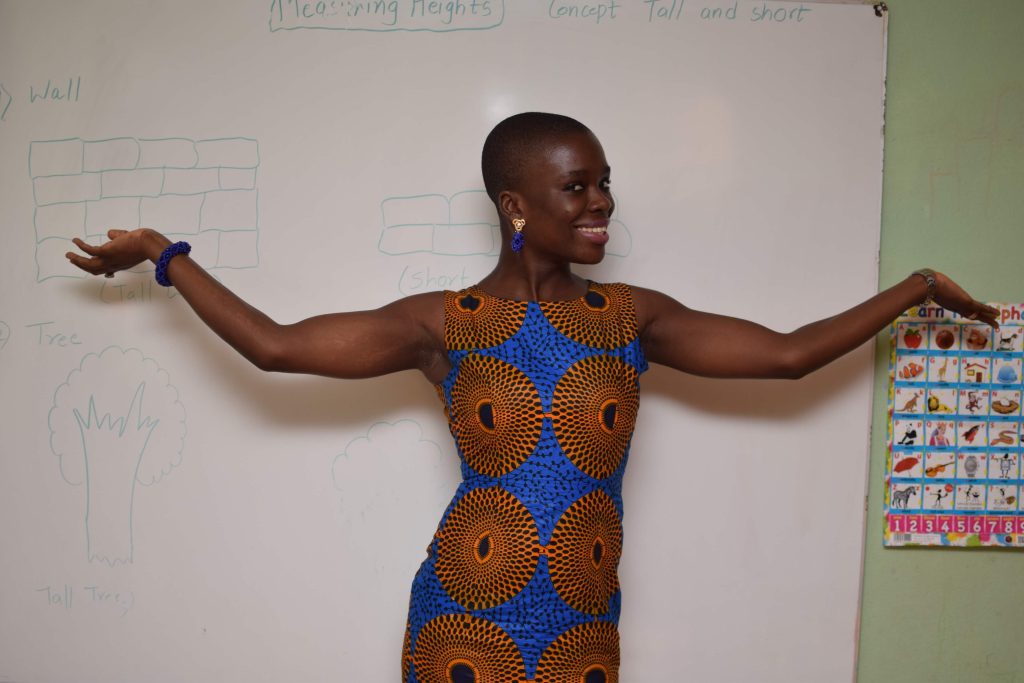
At the start of a new week, Lady Perfect African woman needs to ensure that the kids eat a healthy breakfast and are ready for school. Dressing them up from the neat piles of uniforms, drawers and socks locked up in dainty cupboards gives her the greatest satisfaction. The drive to work as therapeutic as the cool refreshing air is intertwined with endless questions such as, “Mama why can’t we a purple car”, “Have you noticed that the trees have been following us ever since we left the house?” Fully knowing the perks of not communicating with her children, suppressing their imagination and self- expression, the next minutes that ensue are based on endless fantasies as to why the trees did not stop following the car. By lunchtime Ms. Perfect is frazzled, in between meetings all she needed was that breakfast she had to forgo because she had deadlines that were detrimental to her yearly bonus. She couldn’t forget that could she? That bonus was the key to days of sunshine at the beach. At 3:00 pm she was sure she had ticked off most of her daily action items only to remember that she still had that meeting with her child’s teacher at school. Could she call Daddy to be there? But how could she be so insensitive to his hectic Monday schedule. At a last resort, she called to reschedule. She knew that she couldn’t afford to skip her monthly women’s meeting based on family matters. As the chair for this quarter her involvement with the organisation had not only boosted her association with the right people but she could really see the difference in her sales portfolio. At 8:00 pm she was craving for a foot soak, had some reading to catch up with but could barely make it through dinner time. The last she could remember was setting the alarm to mark the start of a new day. Tomorrow she was certain that she would do better at her tasks. Ms. Perfect is the 21st Century African Woman, who has the world at her feet. She is living the life of her dreams by being everybody’s best except to herself. The world constantly expects high performers, successful people and achievers. None of these expectations are wrong or undesirable rather choosing the path of proper planning, realization of our human capabilities and self-care might prevent the host of people who battle ill-health, are burnout and fatigued, stressed out parents, depressed professionals and unhappy people as a whole. Does this day reflect a fragment of your lifestyle or can you identify a Ms. Perfect in your network? We can make it better together as we will look at strategies to keep Ms. Perfect imperfectly whole: Stay Present Becoming fully aware of your body and its limitations can be a first step to staying present. Enjoy moments in your daily activity without projecting into the next. Staying focused in your tasks will increase productivity. Savour your moments! When was the last time you really tasted the flavours of your lunch? Involve Others Bionic women exist only in fiction books fictional characters; it will not make you any less than a dutiful partner to ask for help. Get other people involved in sharing your daily tasks- delegate responsibility to older children. Do not get caught up in micromanaging every single detail that concerns you. Something’s were meant to go wrong- Own it- It is not always about you and how you do it. Stay connected with people that support you, find time to make that call or send that message to someone you care about. Don’t be an Island. Applaud Yourself Daily Find moments each day to tap you on the back, say well done champ; I am the best! Accept compliments. Don’t you know that you are unique by simply being you? Research has proven that self-praise boosts levels of your feel-good hormones; serotonin and dopamine. Realistic Expectations Accept that the price of commodities is not determined by you. Not having a good bargain on groceries does not equal to a bad day. Looking after yourself is what you determine; eating healthy, exercising, taking routine vitamins are within your scope. Taking care of you guarantees the future of great expectations. Pamper Yourself Make time to accomplish the big goals of fine dining, body massages to exotic holiday trips when you can but don’t forget walking on the beach, watching the sunset. Enjoy your favourite book/movie. Do what you love! Ignore the Crowd Don’t be one to follow the trends and expectations of society, set your own rules that will govern each area of your life i.e. social- professional – family life. There would always be people waiting to condemn and criticize where you went wrong in being a lady, a good mother or a boss. Take in the good points and throw out the rest with a good laugh. Remember that simple things such as choosing to eat lunch by yourself might be termed wrong by your best friend. As humans we can never please everyone. Romance Your Pillow Make time to sleep, let nothing or no one disturb your sleep. When you sleep rest in peace, forget the sorrows of today and the maybe’s of tomorrow. Rather be grateful for the little things that went well. Let all other things go. The new you that pays attention to self-care will grant you a healthier and a meaningful life of purpose!
Sitting still is the new move: On meditation

Almost everyone I know is either busy or tired. In this age of hyperconnectivity, we’re always “on.” In the race to stay on top of work, news, and friendships, it’s difficult to find time for self-care. By creating the space to embrace the present, meditation gives us the time to tune out the noise and listen to our inner voices I first learned the importance of meditation at my Quaker high school. Silence is a unique features of a Quaker worship service. Through silence, Quakers believe they can listen, reflect, and deepen their connection with God, their community, and themselves. For forty-five minutes once a week, teachers and students met in a sunlit room to sit in silence. In such a competitive, Type A environment, the fact that we came together weekly to affirm the time to reflect and to dream is extraordinary. Taking the time for mindfulness helped me listen to my inner self rather than follow the crowd. As a teenager trying to figure out life, that space was essential. But as a young woman in the digital age, I find the need for silent reflection even more essential. It was easy to meditate in high school when the time was carved out for me—it’s harder to accomplish now as an adult with a hectic schedule. But according to experts, meditation one of the best ways to focus and be present rather than in “react” mode. Ready to start meditating? Here are a few tips for incorporating it into your life: Start small Sit for just five minutes a few days a week, and gradually build upwards. Check in with yourself How do you feel—tired, anxious, energized? Focus on your state of being and you’ll learn more about yourself. Don’t worry about doing it right For some people, meditation is about clearing the mind or avoiding all thought. While that can happen during meditation, that’s not the point. It’s normal to have thoughts, and meditation can help you better focus the direction of your attention. Create a space When you’re meditating for short periods of time, your location might not matter as much, but as you increase your time spent meditating, you should be comfortable. What does your soothing environment look like? Do you need a pillow? Do you prefer sitting in the sunlight or an evening session with candles? Design a calming space that helps you clear your mind. Make it part of your daily routine Set a reminder to meditate each morning to help get your day off to the right start. Switch off your phone and find a quiet space. Can’t take the time before the morning commute? Try carving out a little bit of your lunch break or use meditation as a strategy to unwind before bed. Join a community There are Meditation Meetups in thousands of cities worldwide. If you can’t find a group that suits you, create one with family, friends or colleagues. Depending on where you are, you can look into your company benefits—many employers now provide meditation training to promote wellness and productivity. Try an app Some crowd favorites include Headspace, Buddhify, and Mind. Every morning, I take half an hour to meditate. The silence helps me cope with the deluge of information I receive everyday in my full-time job as a Communications Manager at a multi-stakeholder industry association and my night-owl assignments as a freelance writer and editor. In the words of Buddha, “All that we are is the result of what we have thought. The mind is everything. What we think, we become.”
